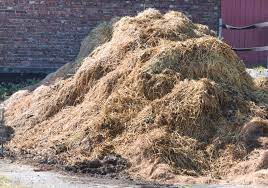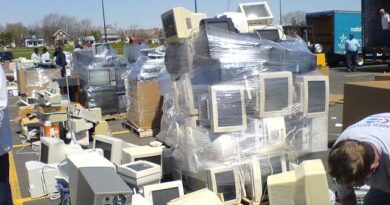Uses of Agricultural Wastes
There are a number of applications to which agricultural wastes can be used. These include:
1. Assource of fertilizer
The use of animal manures as a source of fertilizer has impact on input energy requirements at the farm level (Timber and Downing, 1977). Animal manure could supply 19% N, 38% P and 61% K (Council for Agricultural Science and Technology, 1975).
However, fertilizer use of manures from large confinement is associated with high costs for transport, distribution, storage facility requirements, odor problems and possibility of groundwater contamination.
Mokwunye (2000) reported that poultry manure contain high phosphorus which has positive effect on the growth and productivity of crops. It is also effective when combined with mineral phosphorus fertilizer for farm use.
Read Also : Waste Generation and Effect of Waste on Environment
Adding manure to soil increases its fertility because it increases the nutrient retention capacity (or cation exchange capacity), improves the physical condition, the water- holding capacity and the structural stability of soil.
2. Assource of biogas
Agricultural waste, particularly the manures, can be used to produced methane gas. The gas can be used for heating purposes as in broiler operation, water heating, grain drying, etc. The acid- forming bacteria break down the volatile solids from organic waste to organic acids, which are then utilized by methanogenic organisms to yield methane-rich gas.
The composition of the typical gas produced is: methane, 50-70%; CO2, 25-45%; N2, 0.5-3%; H2, 1-10% with traces of H2S; and the heating value of the gas is in the range of 18-25 M J m–3.
Anaerobic digestion makes the treatment and disposal of large poultry, swine and diary waste feasible, minimizing the odor problem. It stabilizes the waste and the digestion sludge is relatively odor- free and yet retains the fertilizer value of the original waste.

Figure: Methane production by microbial fermentation (Adapted from Obi et al. (2016)).
3. As heavy metal adsorbent
The release of excessive heavy metals to environment as a result of industrialization is of great concern world wild. Heavy metal ions such as copper, cadmium, mercury, zinc, chromium and lead ions do not degrade into harmless end products easily and therefore pose danger to environment as a result of their toxicity to many life forms.
Studies on the treatment of effluent having heavy metal revealed that adsorption is highly effective technique for the removal of heavy metal from waste stream and activated carbon has been widely used (Ghand et al., 1994).
Recently, agricultural wastes have been proven to be a low cost alternative for the treatment of effluents containing heavy metals through the adsorption process. The low cost agricultural waste such as sugarcane bagasse (Mohan et al., 2002), rice husk (Ayub et al., 2002), sawdust (Ajmal etal., 1996), coconut husk (Tan etal., 1993), oil palm shell (Khan etal., 2003), neem bark (Ayub et al., 2001), etc., have been investigated for elimination of heavy metals from wastewater.
4. Assourceof animal feeds
Agricultural wastes from both crop residues and animal waste can be used as animal feed. The use of broiler litter in cattle feeding is a widely applied practice. Animals, especially ruminants are useful in converting crop residues into food, hence contributing substantially to reducing potential pollutants.
Read Also : Agricultural Waste Generation Sources and Characteristics
The rumen contains the microbial enzyme cellulase, which is the only enzyme to digest the most abundant plant product, cellulose (CAST, 1975). With ruminants, nutrients in by-products are utilized and do not become a waste-disposal problem (Oltjen and Beckett, 1996).
In summary,agricultural wastes are valuable resource and can be useful of raw material for fertilizer production, animal feeds, biogas as well as sources for improving food security.
However, if not treated, kept or disposed of properly, agricultural wastes are likely to cause pollution to the environment or even harm to human health. This calls for increased public awareness on the benefits and potential hazards of agricultural wastes, especially in developing countries.



